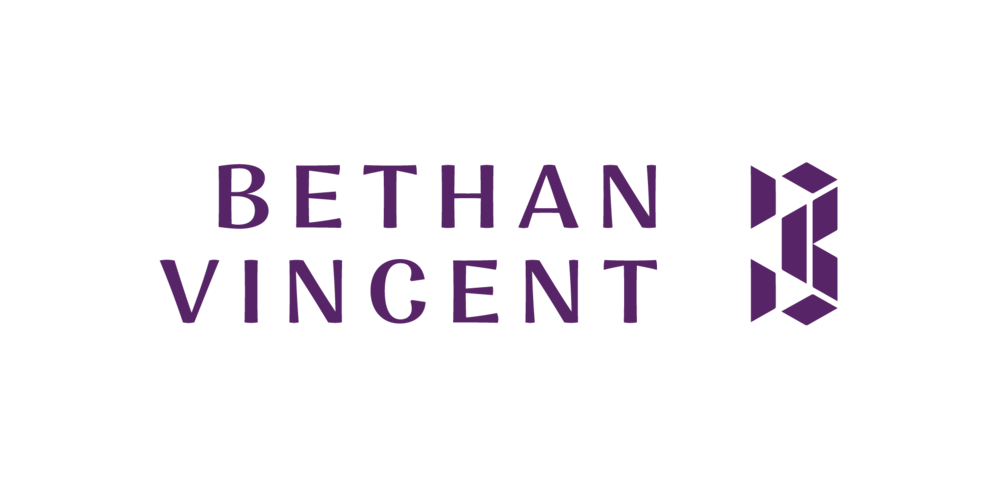Last week I received the extremely exciting news that my talk submission had been accepted for The Lead Developer conference in London this June. I had submitted my application for a talk about hiring diverse teams on whim, not really expecting to be chosen as I knew the competition would be fierce.
I’m by no means an expert and would say I’m only really at the start of my “career” as a regular conference speaker. I’ve spoken at a handful of big events, including Dot York last October, and have also amassed a bit more experience talking at local meet-ups such as Front-End-York and Code Pen Hull.
In preparation for June, I started to look out on the big world wide web for conference speaking tips, but found a lot of the articles were targeted at established or high-profile speakers. I decided to put together my own set of tips for people who are in a similar position to me and perhaps thinking about speaking for the first time, or looking to progress from small events to larger platforms.
Pitch an original or compelling idea
If you’re making a submission to a very popular call for papers/speakers, the likelihood is that there will be people pitching very similar topics to yours in a general sense.
In order to catch the organiser’s attention you need to make sure that your talk proposal has a USP that sets you apart from the other submissions. This USP needs to be compelling and ideally original.
If you have a story, experience or point of view that is unique to you - make sure you highlight that clearly in your application. Think about what you can bring to the table that can not be replicated by someone else - that might be an unusual career history, experience in a particular company or vertical, or a story about how you have overcome an unusual challenge.
Begin by looking for shorter speaking slots
This is how I started with speaking at conferences and I think it’s a really good route into becoming a regular speaker. Whilst conference organisers want to bring new stories and faces to their events, they also need to know people can deliver a compelling and engaging talk, which is hard to judge if you don’t have a track record with public speaking.
Many conferences offer small slots to less experienced speakers for this reason. Firstly, it’s less daunting for people with less experience to go up and speak for 5 minutes as opposed to 30, secondly if the talk doesn't go as well, it’s not a huge chunk out of the delegates day.
I started off with a 5 minute slot at UpFront in Manchester way back in 2017 and have built things up from there. (On a side note, also look out for conferences which offer first time speaker programmes. This is how I got into UpFront).
Practice a lot, but not too much
My personal opinion is that you can tell when a talk is over-practiced - it takes on a slightly robotic feel and just doesn’t feel as authentic.
Whilst I’d never recommend just turning up and delivering something off the cuff (unless you know for a fact that works for you), there is a point where practicing will deliver diminishing returns.
I usually stop when I can remember the outline of my talk in the order I want to cover each point, even if the exact delivery differs on each run through.
Get feedback from multiple sources whilst writing your talk
It is (hopefully) very unlikely that you will have a homogenous audience on the day of your talk.
In reality, you will be speaking to a diverse range of people from a spectrum of backgrounds, each with a different set of experiences and opinions. A particular point or story that resonates with one person, may not resonate with another.
I would argue that your job as a speaker is to try and connect with as many people as possible through your narrative, however this can be hard to judge if you’re relying on your own judgement or the feedback of a few people. As they say, you do not equal your user (or audience).
To counterbalance this, try and get feedback on an initial outline of your talk from as many people as possible. Ask them what worked/or didn’t work for them and why - from this you will be able to gauge whether your talk has that wide-reaching impact.
It’s also useful to get feedback on the finished talk as your practicing, if only to understand if you’re talking to quickly or not enunciating properly.
I’m definitely not the canonical expert in public speaking, so I asked my community if they had any more tips to share with you:
Not conferences specifically but have done public speaking for large groups. I never scripted. I had bullet points and did prepare but delegates will forgive it being rough around the edges as long as you talk to them, look at them and engage. In my opinion of course. :-)
— Love Cheese (@Lovecheeseyork) February 9, 2019
Pauses are your best friend. Allows points to hit home. I never knew what to do with my hands so good advice is to keep elbows by your side, start gesticulating with one hand and the other naturally follows.
— Andy Bowman (@Bowman_A_B) February 9, 2019
“Be yourself, breath and smile - very simple but people often forget the basics when they are perhaps nervous or in panic mode 😄” - Sally Parker, MD Pick & Mix Marketing
I always find going through my presentation or what I want to say outloud before I write any slides, really helps me feel confident in what I’m saying.
— Rebecca Rafferty (@RebeccaRaff10) February 10, 2019
I’m also a big fan of mostly winging it, then if it goes wrong or you forget something it’s less of an issue ☺️
“In addition to the good advice so far, watch ex US President Bill Clinton’s speeches - in particular the way he scans every part of his audience, making sure of apparent eye contact with all, wherever they are seated. Note also his measured pace of delivery, avoidance of repetition and absolute absence of “err”, “erm”, and other filler words such as “like” and “basically”. Clean, crisp and to the point. Don’t be afraid of using short silences throughout your delivery. A short silence following an important point is an effective reinforcer of the point. Avoid subjecting the audience to what I term a continuous “ torrent of words”. Give them time to think about and absorb the crucial points in your delivery. If using PowerPoint or similar, avoid looking back and speaking to the projection screen. Keep eye contact with the audience and use your tablet/laptop screen in front of you to glance at the presentation for prompts etc. Avoid over-running, especially if yours is one of several successive presentations for the audience in that session. Finally, try to add some humour as appropriate - it always helps!” Bob White Managing Director at Blue Oak Consultancy
Be careful not to pack too much information into your presentation. You should be able to fit everything in and still have time to speak at a gentle pace, pausing and reflecting when needed. It's not a race to the end!
— Claire Davies (@greedywordsmith) February 9, 2019
Keep smiling when it goes wrong. The audience only notices when you look uncomfortable.
— Rachel Willmer (@rwillmer) February 8, 2019
“1, Plan your talk over weeks not days. Every time you get an idea write it down on a scrap of paper. Then after a few weeks arrange them into a structured talk - start, middle and end. 3, be a storyteller. Use advice from Hollywood script writer Michael Hauge 4, learn it without needing notes. Abraham Lincoln would read his aloud to make it stick. Do this over a few weeks. 5, if you feel nervous tell yourself it's ok. You only feel this way because you care. It's a healthy stress that helps. This is a stress challenge response not fight or flight. 6, Be enthusiastic and show lots of energy 7, get the audience involved. Ask them questions. 8, learn to be a feedback junkie. Learn to accept all feedback critical stuff is the best. 9. Do it often. The best speakers are those who practiced the most. “ Alex Burbidge, Founder of Pro Safety Management and Big Smiles
Make sure to take your time , and don’t try to fill in the pauses with unneeded words :)
— GirlsinScience (@ScienceGirlsin) February 8, 2019
“Great question. I’ve done a fair bit of speaking. Here’s what I do: 1. Get super clear from the event organiser why I’m the speaker invited, what they need this session to achieve for the audience. 2. Edit out everything I enjoy sharing that doesn’t suit this audience/event/occasion. 3. Eliminate anything I don’t know to be true or worthwhile. I’m asking people to trust me with their time and attention; trust may be lent but never, I think, taken for granted. 4. Bring warmth into the room. Invite listeners to think with me. Sometimes that’s as simple as listening well to who’s spoken before me, and make respectful links to what together we’ve all heard. 5. Keep to the time. Nothing strangles a memorable close than an anxious Master of Ceremonies who needs to wrestle the mic and make up for time lost. 6. Prepare for the tech setup the event organiser described ahead of time, but be ready for technology to fail or falter. Whatever the circumstances, “the show must go on”. 7. Afterwards, if you meet people who were in the audience, thank them for their time and attention. Ask them about their whole day. If they mention your contribution, ask them if they have any questions or fresh angles on your topic.“ Kate Hammer, Founder of Throughline
Not a first time conference speaker, but I would advise practicing your talk in front of friends and relatives to avoid stage fright
— Graeme Robinson (@grobiwebdesign) February 8, 2019
“I'd suggest the basics of making sure you wear something comfortable and appropriate for your audience. Especially comfy shoes. Practise standing still as this can add gravitas to your words. And be you! Don't try to be another speaker be you!!!” - Jules Wyman, Confidence Coach, Speaker & Author
Don’t put too much written content on a PowerPoint slide - people will read ahead and won’t focus their attention on you and what you’re saying.
— Megan Hallinan (@MeganRex) February 12, 2019
Understand the audience, what can you do to help them achieve their goals.
— Peter Mawson (@HighFarndale) February 12, 2019
Have a q&a if you can.
Two things I did for my first conference talk:
— Scott Walton (@scott_walton) February 12, 2019
Practise until you find the content a bit boring
While talking, focus on looking at different parts of the audience, avoid looking just for the friendly faces
The latter makes everyone feel you’re speaking just to them
The best public speakers are the ones that seem confident in what they're saying. It's not about knowing everyone will love your talk, it's about not worrying if they don't. https://t.co/yzr0gLe1Ri and https://t.co/hv3OOS2hco Are great for more tips too.
— Sam Beckham (@samdbeckham) February 11, 2019











